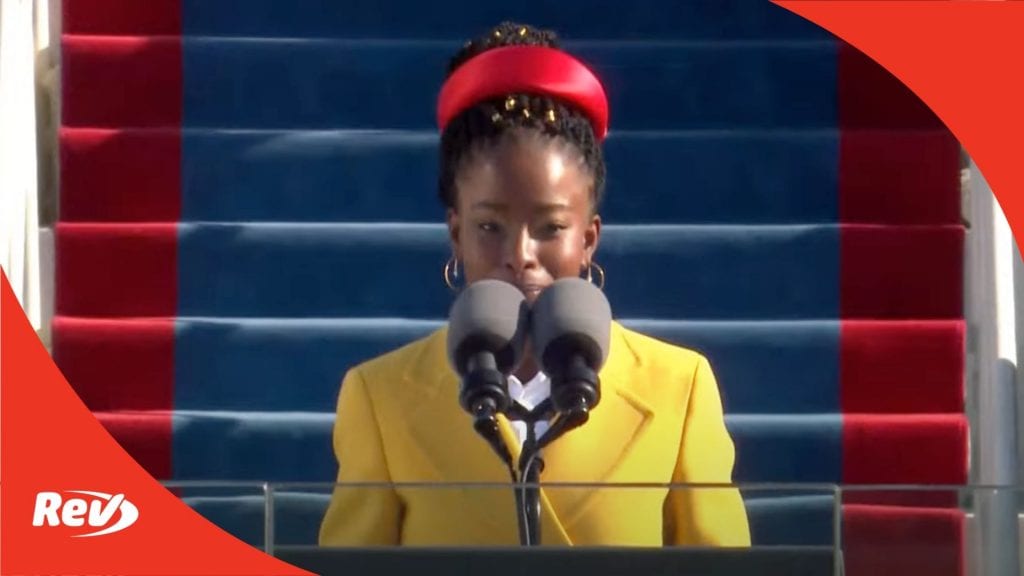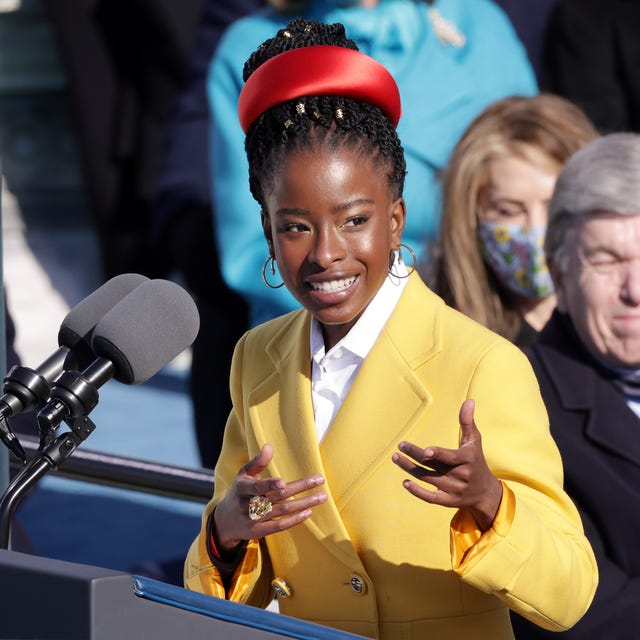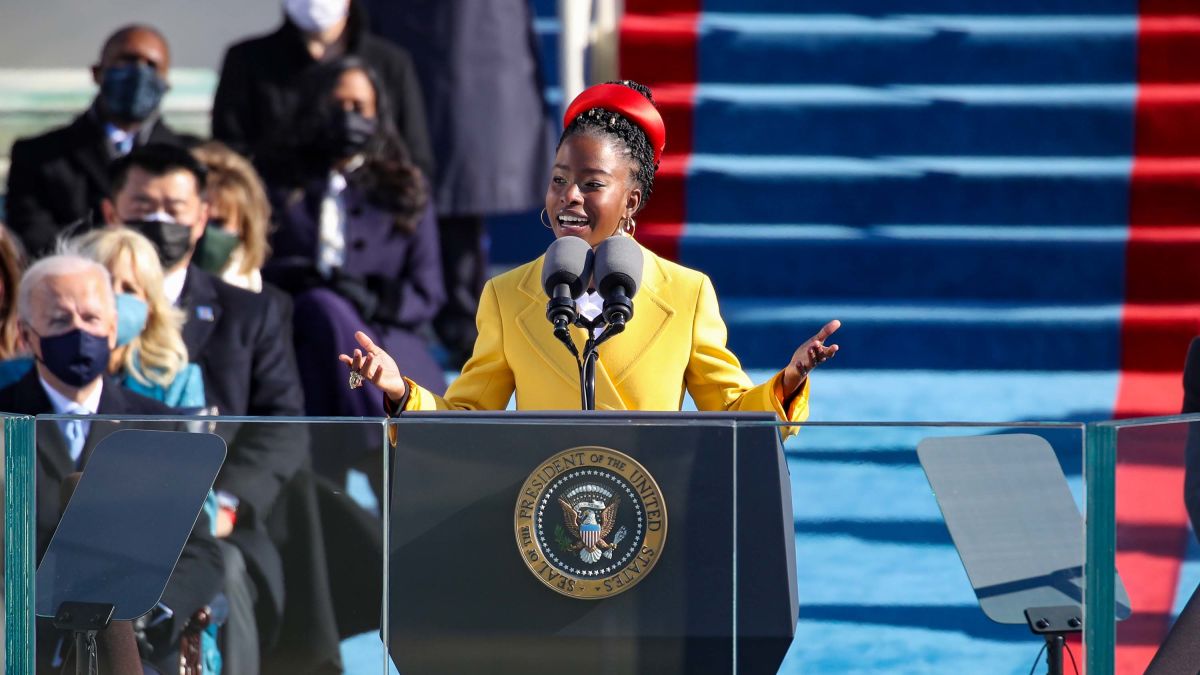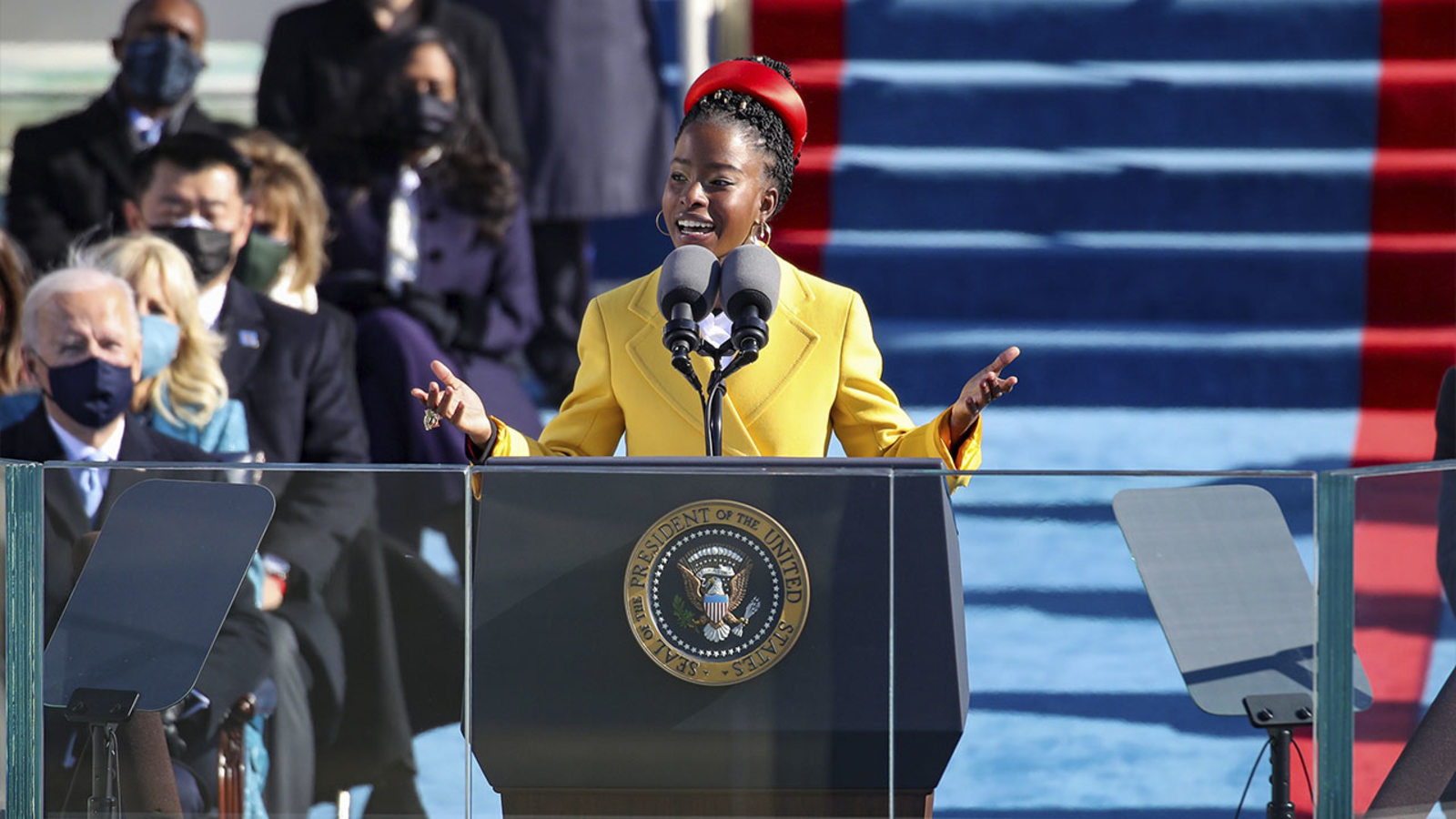‘The Hill We Climb,’ a transcript. Amanda Gorman’s poem recited at Biden’s inauguration captures the times

Among the highlights of the inauguration Wednesday of President Joe Biden and Vice President Kamala Harris, was the recitation of “The Hill We Climb” by 22-year-old Amanda Gorman, the youngest inaugural poet ever and the first person to be named national youth poet laureate — a position she achieved as a 19-year-old sophomore at Harvard University.
If Ms. Gorman is representative of this next generation of leaders and thinkers, the country will be just fine. Here is a transcript of her reading (though you should seek out a recording if you didn’t see it live).
Ms. Gorman wrote the 723-word piece expressly for the event, telling the New York Times that she aspired to neither erase nor neglect the harsh truths the country must reconcile, but to use her words “to envision a way in which our country can still come together and can still heal.”
”Mr. President, Dr. Biden, Madam Vice President, Mr. Emhoff, Americans and the world:
When day comes we ask ourselves, where can we find light in this never-ending shade? The loss we carry, a sea we must wade. We’ve braved the belly of the beast. We’ve learned that quiet isn’t always peace. In the norms and notions of what just is isn’t always justice.

And yet, the dawn is ours before we knew it. Somehow, we do it. Somehow, we’ve weathered and witnessed a nation that isn’t broken, but simply unfinished. We, the successors of a country and a time where a skinny Black girl descended from slaves and raised by a single mother can dream of becoming president, only to find herself reciting for one.
And yes, we are far from polished, far from pristine, but that doesn’t mean we are striving to form a union that is perfect. We are striving to forge our union with purpose, to compose a country committed to all cultures, colors, characters and conditions of man.
And so, we lift our gazes not to what stands between us, but what stands before us. We close the divide because we know, to put our future first, we must first put our differences aside. We lay down our arms so we can reach out our arms to one another. We seek harm to none and harmony for all. Let the globe, if nothing else, say this is true. That even as we grieved, we grew. That even as we hurt, we hoped; that even as we tired, we tried; that we’ll forever be tied together, victorious. Not because we will never again know defeat, but because we will never again sow division.

Scripture tells us to envision that everyone shall sit under their own vine and fig tree, and no one shall make them afraid. If we’re to live up to our own time, then victory won’t lie in the blade, but in all the bridges we’ve made. That is the promise to glade, the hill we climb if only we dare it. Because being American is more than a pride we inherit; it’s the past we step into and how we repair it. We’ve seen a forest that would shatter our nation rather than share it, would destroy our country if it meant delaying democracy. And this effort very nearly succeeded.
But while democracy can be periodically delayed, it can never be permanently defeated. In this truth, in this faith we trust, for while we have our eyes on the future, history has its eyes on us. This is the era of just redemption. We feared it at its inception. We did not feel prepared to be the heirs of such a terrifying hour, but within it, we found the power to author a new chapter, to offer hope and laughter to ourselves.
So, while once we asked: “How could we possibly prevail over catastrophe?” Now we assert, “How could catastrophe possibly prevail over us?”
We will not march back to what was, but move to what shall be: a country that is bruised, but whole; benevolent, but bold; fierce and free. We will not be turned around or interrupted by intimidation, because we know our inaction and inertia will be the inheritance of the next generation. Our blunders become their burdens. But one thing is certain, if we merge mercy with might, and might with right, then love becomes our legacy, and change our children’s birthright.
So, let us leave behind a country better than one we were left. With every breath from my bronze-pounded chest, we will raise this wounded world into a wondrous one. We will rise from the gold-limned hills of the West. We will rise from the wind-swept Northeast where our forefathers first realized revolution. We will rise from the lake-rimmed cities of the Midwestern states. We will rise from the sun-baked South. We will rebuild, reconcile and recover in every known nook of our nation, in every corner called our country our people diverse and beautiful will emerge battered and beautiful.
When day comes, we step out of the shade aflame and unafraid. The new dawn blooms as we free it. For there is always light. If only we’re brave enough to see it. If only we’re brave enough to be it.
— Amanda Gorman’s “The Hill We Climb,” as recited at the inauguration of President Joe Biden and Vice President Kamala Harris

Under a decade ago, Amanda Gorman was still a teenage student in Los Angeles, spending her days devouring the works of Toni Morrison and furiously scribbling in her journals with the dream of one day becoming a writer. After submitting her poems to local competitions, she was named the Youth Poet Laureate of Los Angeles in 2014, becoming the first National Youth Poet Laureate three years later. And today, at 22-years-old, Gorman steps up to her biggest career milestone yet: delivering an original poem, titled “The Hill We Climb”. to celebrate the inauguration of Joe Biden as President of the United States.
How Gorman got here feels more like fate than simple serendipity. A powerful reading of her poem “In This Place: An American Lyric”, delivered at the Library of Congress in 2017, caught the eye of Dr Jill Biden, who contacted her last month about writing an original poem for her husband’s swearing-in ceremony. What was already a hugely intimidating task – crafting a poem that could both capture and reckon with the stark political division of the current moment – became all the more daunting in the wake of the riots that overtook the US Capitol earlier this month, unfolding just as Gorman was finishing her piece.



